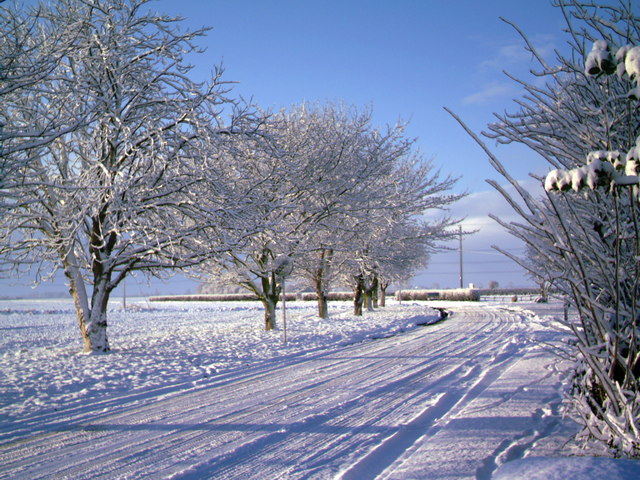Jump to:
A planting calendar helps you stay on top of what to grow and the best time to do it.
As the seasons change, you might lose track of the right sowing times. Some plants need to start indoors, others in a greenhouse, and some can go straight outside.
This Winter and Spring Planting Calendar for 2025 – 2026 lays it all out from January to May. You’ll see what to plant each month, from fruit and vegetables to flowers, plus tips to help you get the best results.
Winter to Spring Planting Calendar
Use this planting calendar as a reference to plan your garden through the first half of the year.
January

December can be mild, so the first real frosts hit this month. There isn’t much planting to do outside, but you can start planting seeds or flowers indoors. Hardy crops and cold-loving bulbs can also go straight into the ground. Garlic and shallots are good examples.
Here’s what your calendar can look like:
| January | Plant or Sow Indoors: | Plant or Sow Outdoors: |
|---|---|---|
| Flowers: | Snapdragons* Geraniums Begonias Lobelias Carnations Sweet Peas* | Lily Bulbs* |
| Fruit and Vegetables: | Herbs* Aubergine Greenhouse Tomatoes | Garlic* Onions Cane Berries (Raspberries, Blueberries) Bare-root Fruit Trees |
February

February still brings wintry weather and plenty of frosty mornings. By the end of the month, things may start to ease up a bit—though with UK weather, nothing is certain. For tips on keeping plants safe from the cold, check out our guide.
Outdoor planting is still limited, but there’s plenty you can do indoors. Many vegetables get started this month. The same goes for annual, biennial, and perennial flowers.
This is how your calendar may look:
| February | Plant or Sow Indoors: | Plant or Sow Outdoors: |
|---|---|---|
| Flowers: | Dahlias* Annual flowers Biennial flowers Perennial flowers Petunias* Impatiens* | Bare-root roses Winter-flowering shrubs such as Daphne and Witch Hazel Nicotiana* |
| Fruit and Vegetables: | Artichoke Broccoli Brussel Sprouts Cucumber Kohl Rabi Pepper Chillies Basil* | Carrots Parsnips Rhubarb |
March

March marks the shift toward spring. Snowdrops are appearing, and buds are forming on trees. But don’t be fooled by these early signs! March is still late winter, and the cold can linger.
Planting can be tricky due to the possibility of frost. Keep an eye on the forecast and wait until the end of the month before planting outside. But your calendar for this month could look like this:
| March | Plant or Sow Indoors: | Plant or Sow Outdoors: |
|---|---|---|
| Flowers: | Climbing annuals Cleome seeds* Cosmea seeds Gazania* Marigolds | Sunflowers Poppies Cornflower Wildflowers Deciduous trees Forced flower bulbs* |
| Fruit and Vegetables: | Asparagus Artichoke Broccoli Brussel Sprouts Celeriac Celery Marrow Shallot Squash Sweetcorn | Peas Broad Beans Beetroot Cabbage Kale Kohl Rabi Leek Lettuce Radish Rocket Samphire Spinach Spring Onion Turnip |
April

Spring should be in full swing by now. Flowers will be sprouting, and some trees may start to show leaves, though that usually happens in May.
Temperatures are warmer, and the weather is wetter, both of which are good for growing. The last frost has likely passed, so most planting can now happen outside. Your tasks are more of moving veggies and flowers started indoors into the garden.
You can also refer to this planting calendar if you’re starting fresh:
| April | Plant or Sow Indoors: | Plant or Sow Outdoors: |
|---|---|---|
| Flowers: | Nasturtiums Dianthus Petunia Scabious Salvia Ageratum Zinia Rudbeckia | Clarkia Lagurus Monarda |
| Fruit and Vegetables: | Melon | Cauliflower Chard Courgette Chives Coriander Dill Parsley Pak Choi Watercress Brassica Potatoes |
May

May is the month for growth—sunny days and greenery everywhere! You’ll start to see the results of the work you did over the winter.
Focus on getting flowers, fruits, and vegetables planted outside. The soil is warm and loose enough for most flowers. You can still start a few plants indoors to keep them safe before summer.
Here’s one way to set out your calendar:
| May | Plant or Sow Indoors: | Plant or Sow Outdoors: |
|---|---|---|
| Flowers: | Climbing perennials Foxgloves Dianthus Helipterum Larkspur Primrose* Sweet William | Phlox Candytuft Godetia Nigella Damascena Foliage bedding Alyssum Hydrangeas Lavender Rudbeckia Snapdragons Marigolds |
| Fruit and Vegetables: | Sweetcorns | Artichoke Beans Broccoli Brussel Sprouts Celery Courgette Cucumber Marrow Pepper Pumpkin Swede Tomato plants* |
Cold snaps may still occur, so watch the weather and cover your plants if needed!
Winter and Spring Planting Tips
Here are some helpful tips you may not know yet to give your garden the best chance of success this season:
Pre-chill seeds for faster germination
Lettuce and perennials, such as delphiniums, germinate better after a short cold period. Place them in a fridge for a week or two before planting indoors. This mimics natural winter conditions and can give your seedlings a head start.
Use cloches or cold frames
Most gardeners know these protect young plants, but they can also extend your season. Place them over rows of hardy vegetables to start planting earlier. You can also use it to protect delicate seedlings during unexpected cold snaps.
Rotate winter crops to avoid pests
If you’re reusing beds from last year, avoid planting the same vegetable in the same spot. Try planting different types in each bed each year. For instance, grow root vegetables where you previously grew leafy greens.
Pests and diseases linger in the soil, and rotating crops helps reduce problems.
Pre-soak bulbs for quicker blooms
Hardy bulbs like daffodils and tulips do better if you soak them in water for 4 to 6 hours before planting. This helps them take up moisture and get a quicker, stronger start in the soil. You can also add a little liquid fertiliser to the water for an extra boost.
There you have it! We hope this planting calendar makes your gardening easier and productive this year. If you plan to start plants indoors, a greenhouse is the perfect spot, and we have a great range to choose from. Good luck!





